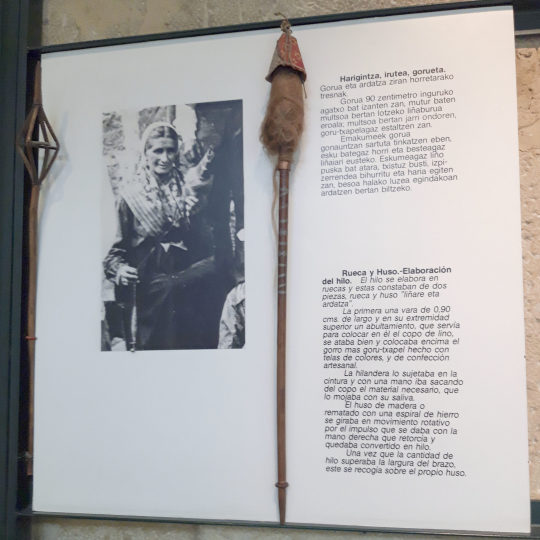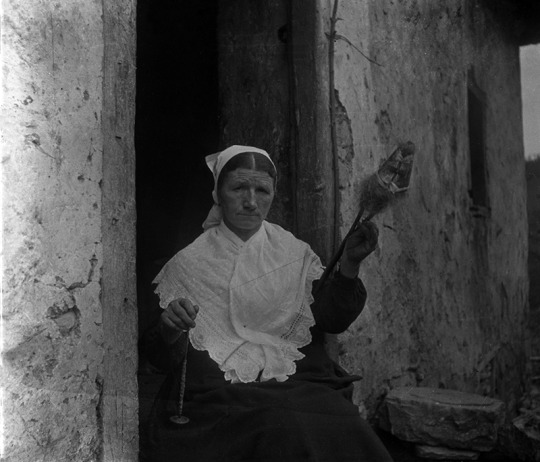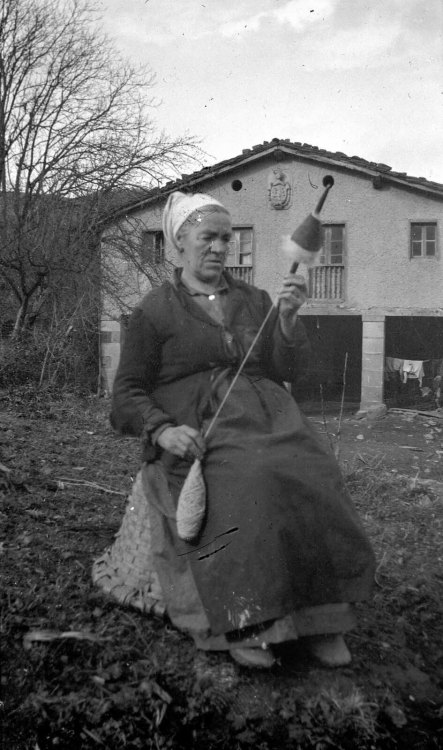#basque people
Aymeric Picaud was a French priest that went on to fulfil St James’ way in the 12th century. He wrote about what he saw and found on his way in a sort of Guide for the Pilgrim, included in the famous Codex Calixtinus.
He talks about the roads, the villages, and the people, and oh we Basques left a deep impression in poor monsieur Picaud: 2/3 of his chapter dedicated to the people that lived along the Way was about us. Sweet. He wrote:
The people of this land are ferocious like ferocious, wild and barbarian is the land they live in. Their faces are fierce, and their barbarian language as well, they put terror into the soul of the one who sees them. They can only legally charge the merchants, so the tax they charge the pilgrims and travellers is illegal. When the standard fee is about 4 or 6 coins, they charge 8 or 12.

(…)
Wherever a Navarrese or Basque goes, they bring a hanging horn like the ones of the hunters, and they usually bring two or three spears that they call auconas. And when they enter their house they whistle like a kite. And when they are ambushed to hunt a prey and want to stealthily call their partners, they sing like an owl or howl like a wolf.
(…)
It’s clear that they dress poorly, and they poorly eat and drink, and in the house of a Navarrese it’s of custom to eat all the family at the same time, lord and servant, lady and maid, having all the dishes in just one pot and without spoons, but with their own hands; and they all drink from the same pitcher. When one sees them eating, they ressemble dogs or pigs. And when they speak, they sound like dogs barking, due to their language being so barbarian. They call God urcia; God’s mother, andrea Maria; bread, orgui; wine, ardum; meat, aragui; fish, aragui; house, echea; the lord of the house, iaona; the lady, andrea; the church, elicera; the priest, belaterra, which means beautiful land; wheat, gari; water, uric; the king, ereguia; and St James, iaona domne iacue.
Here monsieur Picaud can’t tell declensed and undeclensed words apart and doesn’t care. Water should be ur-urikis a declensed form - as church should be eliza-elicerais also declensed.
Belaterrabeing “beautiful land” may work for Italian, but not for Basque: whatever Basque was his source for this trolled him and trolled him well. Belateis a mount near Iruña, and Belatera means to Belate. Belate may be translated as “the door of the crow” [bele+ate].
Another trolling? God being urcia. Urtzi / Ortzi means sky, as the pagan god of the sky. The priest probably pointed at the sky asking how do you call God? and our Basque ancestor doing their best answered: that’s the sky, my man!
They’re barbarian people, different from everyone else in their customs and nature, full of evil, black, of ignoble looks, evil, wicked, treacherous, disloyal, lustful, drunk, aggressive, fierce and wild, heartless and damned, merciless and rude, cruel and troublemaker, they lack of any virtue and are taught in every vice and iniquity, as evil as the Getae and the Saracens, and frontal enemies of our Gaulish nation. For a miserable coin, a Navarrese or a Basque kills, by any means, a French.

However, they’re considered brave in the battlefield, hardworking during assaults, reliable to pay their tithe, perseverant in their offerings to the altar.
Guess it’s all cool then!
Basque woman in traditional clothes spinning before the Irazabal Aundi baserria,Bergara (early 20th century, we guess).
Since some of you - @auressea & @wikdsushi-v2 especially - in the tags showed your interest in that particular hand spin, here it is:

It’s called liñareand as you can see its a stick with a diamond shaped piece on one end where flax was put and then secured with a kind of little hat made of fabric called goru-txapel.

The spindle can be seen perfectly in this pic above.
Post link

